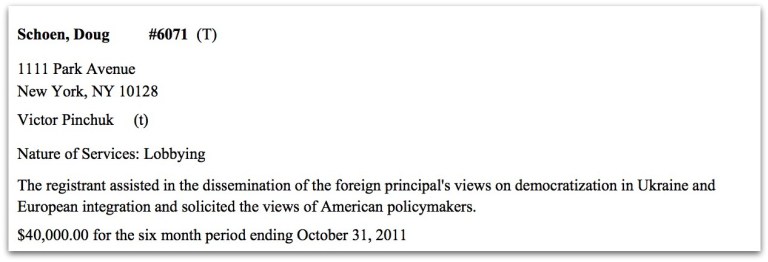It looks like you're using an Ad Blocker.
Please white-list or disable AboveTopSecret.com in your ad-blocking tool.
Thank you.
Some features of ATS will be disabled while you continue to use an ad-blocker.
Machine Guns, Bloody Lipstick, Google Secret Agents & Dirty Dossiers: The Big Story under the radar
page: 5share:
PNAC is completely Bush era Republicans. Your premise is completely wrong.
a reply to: theantediluvian
Obama huh?
I seem to remember him pro-missiles during the campaign. Yep, there it is:
content.time.com...
But the newcomer did flip flop:
yidwithlid.blogspot.com...
Oh well.
"Romney"
"right-wingers"
"Peter Thiel was so tight with Trump"
Dude, dont try spinning this into a left v. right partisan bickering festival. Wrong meeting.
Google Funded by CIA & NSA:
medium.com...
Google Funded by NSF:
www.nsf.gov...
Google Funded by DARPA:
www.newsweek.com...
Google overtly partnered with NASA:
www.nasa.gov...
...
Obama huh?
I seem to remember him pro-missiles during the campaign. Yep, there it is:
content.time.com...
But the newcomer did flip flop:
yidwithlid.blogspot.com...
Oh well.
"Romney"
"right-wingers"
"Peter Thiel was so tight with Trump"
Dude, dont try spinning this into a left v. right partisan bickering festival. Wrong meeting.
Google Funded by CIA & NSA:
medium.com...
Google Funded by NSF:
www.nsf.gov...
Google Funded by DARPA:
www.newsweek.com...
Google overtly partnered with NASA:
www.nasa.gov...
...
originally posted by: theantediluvian
Actually no. Remember that whole "Russia Reset" thing that started in 2009 and ran until about the end of 2011 when the State Department criticized parliamentary elections in Russia? From there, it went downhill fast.
You're right, it did. You see while I dont know all the shady goings ons behind the scenes of that little period, I do get the geopolitics plenty enough to manage in the OP.
You see this modern tug of war over Ukraine, well Russia's history there goes back centuries...
Ukraine during World War I
Upon the outbreak of World War I, the name Ukraine was used only geographically, as the term did not exist nationally. The territory that made up the modern country of Ukraine was part of the Russian Empire with a notable southwestern region administered by Austro-Hungarian Empire, and the border dating to the Congress of Vienna in 1815.
Ukraine declares its independence 1918
Immediately following the overthrow of the czar in February 1917, Ukraine set up a provisional government and proclaimed itself a republic within the structure of a federated Russia. After Vladimir Lenin and his radical Bolsheviks rose to power in November, Ukraine—like its fellow former Russian property, Finland—took one step further, declaring its complete independence in January 1918.
But Ukraine’s Rada government, formed after the secession, had serious difficulty imposing its rule on the people in the face of Bolshevik opposition and counter-revolutionary activity within the country. Seeing Ukraine as an ideal and much-needed source of food for their hunger-plagued people, Germany and Austria brought in troops to preserve order, forcing the Russian troops occupying the country to leave under the terms of the treaty at Brest-Litovsk, signed in March 1918, and virtually annexing the region, while supposedly recognizing Ukrainian independence. In the words of Wilhelm Groener, a German army commander in Kiev, The [Ukrainian] administrative structure is in total disorder, completely incompetent and in no way ready for quick results.It would be in our interests to treat the Ukrainian government as a cover’ and for us to do the rest ourselves.
The defeat of the Central Powers and the signing of the armistice in November 1918 forced Germany and Austria to withdraw from Ukraine. At the same time, with the fall of the Austro-Hungarian empire, an independent West Ukrainian republic was proclaimed in the Galician city of Lviv. The two Ukrainian states proclaimed their union in early 1919, but independence was short-lived, as they immediately found themselves in a three-way struggle against troops from both Poland and Russia. The Ukrainian government briefly allied themselves with Poland, but could not withstand the Soviet assault. In 1922, Ukraine became one of the original constituent republics of the Union of Soviet Socialist Republics (U.S.S.R.); it would not regain its independence until the U.S.S.R.’s collapse in 1991.
Holodomor
The Holodomor, derived from морити голодом, "to kill by starvation", also known as the Terror-Famine and Famine-Genocide in Ukraine, and—before the widespread use of the term "Holodomor," and sometimes currently—also referred to as the Great Famine, and The Ukrainian Genocide of 1932–33 was a man-made famine in Soviet Ukraine in 1932 and 1933 that killed an officially estimated 7 million to 10 million people.
Although I have too managed to sniff a little into the sneaky direction...
Clinton / Soros Operative paid million$ to agitate war with Russia

In a remarkable conflict-of-interest, Fox News analyst and former Clinton operative Douglas E. Schoen has failed to disclosed to readers that he’s been paid millions of dollars from Ukrainian agents to incite a war between the United States and Russia. Before inciting war with Russia, Schoen worked for Bill Clinton and brokered meeting (for $40,000 a month) between then-Secretary of State Hillary Clinton and billionaire oligarchs.
www.dangerandplay.com... ussia/
George Soros’ Giant Globalist Footprint in Ukraine’s Turmoil
Besides Soros, U.S. participants have included Bill Clinton, William Daley (Obama’s White House chief of staff), Robert Zoellick (Bush’s trade representative, then president of the World Bank), Newt Gingrich, and Condoleezza Rice, to name a few — Democrats and Republicans, CFR globalists all.
Pinchuk, a pal and funder of both Bill and Hillary Clinton, not only has generously supported Bill’s Clinton Global Initiative, but also has poured more than $13 million into the Bill, Hillary and Chelsea Clinton Foundation. Another close tie is Douglas E. Schoen (CFR), a longtime Clinton operative and political consultant, whom, according to the New York Times, Mr. Pinchuk hired as an adviser in 2000 — and to whom the oligarch has been paying a tidy retainer of $40,000 per month ever since.
One of the important ventures that Soros and Pinchuk are financing is the Ukrainian Crisis Media Center (CMC), a collaboration of Ukrainian public relations corporations and journalists that is headquartered in Kiev’s Hotel Ukraine. Ostensibly, it was created to counter the propaganda onslaught of Putin’s Russian media cartel. Much of the “independent news” we receive from Ukraine is produced by the CMC and stamped with the Pinchuk/Soros-approved brand of propaganda. That includes cheering on or papering over the fact that the “new” government in Kiev is simply the latest rotation of musical chairs, and it has ended with Pinchuk’s fellow oligarchs (virtually all of which are “former” communists) and their parliamentary blocs and political parties occupying the most important chairs (as we reported here).
So there we have Soros meddling in Ukrainian politics since the 1990's, trying to use them as a EU hedge against Russia, meaning he's been instigating them, no?
Soros, who funded Obama/Hillary since before the "Russian Reset".
On 6 March 2009 in Geneva, U.S. Secretary of State Hillary Clinton presented Russian Foreign Minister Sergei Lavrov with a red button with the English word "reset" and the Roman alphabet transliteration of the Russian Cyrillic alphabet word перегрузка ("peregruzka".) It was intended that this would be the Russian word for "reset"
but actually was the word for "overload".
en.wikipedia.org...
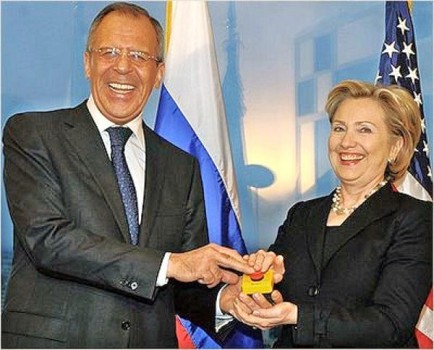
edit on 3-11-2017 by IgnoranceIsntBlisss because: (no reason given)
edit on 3-11-2017 by IgnoranceIsntBlisss because: (no reason given)
Thinking back to 2007, this all sounds familiar...
That's right, Rudy Giuliani, yes THAT Rudy, he was in the same thinking as hedge fund manager Soros:
"Hedge" is such a choice word in a geopolitical context as to me -especially when it's a Neocon delivering it- it comes off as jingoism...
Anyways, so in 2008 Obama gets in with Soros help:
humanevents.com...
And while he did dial back the Neocon missile "defense" (mechanism of Russia antagonization), Obama & Hillary got to work in Ukraine.
No?
As all those fancy sorts of details you seem to know a lot about were going on, here comes the CIA engineered Arab Spring in Winter 2010-2011.
2011 being when it seems you want me to focus on the Russia-Ukraine scene?
What difference does what came after 2011 make, when 2011 was kicked off with an imperialist expansion against Russian interests in the decades long partner in Syria?
Lets see...
Fall of USSR Empire (Russia population etc decline): 1991
Soros meddling in Ukraine against Russia: 1990's-Present
US Empire meddling in Ukraine against Russia: 1990's-Present
US imperialism across Eurasia against USSR: 1940's-1991
US imperialism across Eurasia against Russia: 1991-Present
US Empire domination of the Middle East: 1940's-Present
USSR/Russia allied with Syria: 1971
CIA's Arab Spring: Winter 2010-2011
Russia Annexation of Crimea, Ukraine: 2014
How does Russia annexing the teeny tiny little island of Crimea even begin to compare with US imperial operations across Eurasia post-1991? Even IF they didn't have people there, they had no history with Ukraine, Ukraine wasnt their neighbor, they had no previous ownership of the place, and so on??
And even if we weren't the most brazen hypocrites in human history on this stuff, even still how would it be any of or business, of course.
Can we not look at tht timeline and decalre that we trolled them back into imperialist thinking? Can we not see how whatever "election meddling" actually did go on, that we've been begging for it since 1991?
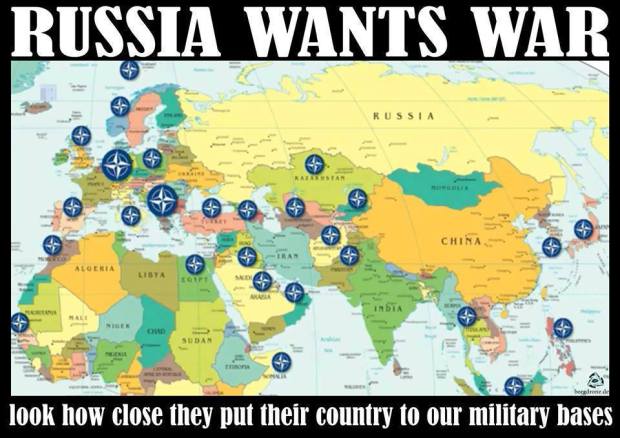
Do note that American Imperialism in Eurasia hasnt been limited to Ukraine and the Middle East. Post 9/11 the fronts included heavy activity all around the Caspian Region, which it literally brushing up against their border there. Then there's US obsession in the Korean Penninsula, not to mention Japan, etc, all to do with the same "containment" agenda that began in the Cold War yet never ceased when we WON.
So WHY, you ask?
EMPIRE.

That's right, Rudy Giuliani, yes THAT Rudy, he was in the same thinking as hedge fund manager Soros:
Ukraine is in a struggle, internally. They need us. They need us to support them to -- they'd be a good hedge against Russia."
www.nytimes.com...
"Hedge" is such a choice word in a geopolitical context as to me -especially when it's a Neocon delivering it- it comes off as jingoism...
HEGEMONY
noun
Leadership or dominance, especially by one country or social group over others.
Anyways, so in 2008 Obama gets in with Soros help:
humanevents.com...
And while he did dial back the Neocon missile "defense" (mechanism of Russia antagonization), Obama & Hillary got to work in Ukraine.
No?
As all those fancy sorts of details you seem to know a lot about were going on, here comes the CIA engineered Arab Spring in Winter 2010-2011.
2011 being when it seems you want me to focus on the Russia-Ukraine scene?
What difference does what came after 2011 make, when 2011 was kicked off with an imperialist expansion against Russian interests in the decades long partner in Syria?
Lets see...
Fall of USSR Empire (Russia population etc decline): 1991
Soros meddling in Ukraine against Russia: 1990's-Present
US Empire meddling in Ukraine against Russia: 1990's-Present
US imperialism across Eurasia against USSR: 1940's-1991
US imperialism across Eurasia against Russia: 1991-Present
US Empire domination of the Middle East: 1940's-Present
USSR/Russia allied with Syria: 1971
CIA's Arab Spring: Winter 2010-2011
Russia Annexation of Crimea, Ukraine: 2014
How does Russia annexing the teeny tiny little island of Crimea even begin to compare with US imperial operations across Eurasia post-1991? Even IF they didn't have people there, they had no history with Ukraine, Ukraine wasnt their neighbor, they had no previous ownership of the place, and so on??
And even if we weren't the most brazen hypocrites in human history on this stuff, even still how would it be any of or business, of course.
Can we not look at tht timeline and decalre that we trolled them back into imperialist thinking? Can we not see how whatever "election meddling" actually did go on, that we've been begging for it since 1991?

Do note that American Imperialism in Eurasia hasnt been limited to Ukraine and the Middle East. Post 9/11 the fronts included heavy activity all around the Caspian Region, which it literally brushing up against their border there. Then there's US obsession in the Korean Penninsula, not to mention Japan, etc, all to do with the same "containment" agenda that began in the Cold War yet never ceased when we WON.
So WHY, you ask?
EMPIRE.

edit on 3-11-2017 by IgnoranceIsntBlisss because: (no reason given)
originally posted by: theantediluvian
What I think your grand theory here is lacking is any addressing of the geopolitics, the agendas, the *why*. From the narrative you lay out, there's no real explanation except something about continuing neocon imperialism. That's not a reason. More importantly, it ignores absolutely everything that Russia has been up to.
One prevailing theory is that the reason behind overthrowing Assad is to thwart Russian energy hegemony, particularly in Eastern Europe where, among other things, Russians control a large chunk of the natural gas supply via pipelines. Guess where those gas pipelines run? Ukraine. (that's a link to the Wikipedia entry for the Ukraine gas disputes, it's a jumping off point at least)
There's reason to believe this is incorrect though as I read that the Bush admin was funding anti-Assad propaganda efforts to the tune of millions as early as 2005-6.
Other theories are that it has to do with the US military posture in the ME but I've yet to read one that was particularly convincing. "Imperialism" just seems like vague filler. Like the nougat of CT. Aside from location, Syria doesn't have much worth having. It's a *minor* exporter of oil and in terms of mineral wealth, much better pickings to be found in other places.
American Imperialism is the overarching answer to the bulk of geopolitical happenings post-1991.
Now what that means, and for who, depends on the when's and the where's, but the one thing for certain it's been a constant set of patterns since before you and I were born, since before the Neocon's even, and irregardless of which "Party" was "at the helm".
It general is about energy dominance, but other reasons, not least of which to maintain the global drug trade corridors.
There are numerous facets to the overall policy, such as "Neoliberal" economic imperialism across the Third World.
Then there's the arms trade angles.
Destabilization of EVERYWHERE, including the EU where the never ending flow of refugees from bombed out places like Syria have them with immense internal crisis mounting (cue up the Social Group Warfare agenda I assert flows along stream with this SJW civil war monstrosity we've had going on here, too).
"Balkanization" was a term I was most fascinated to see last year when getting caught up on the SJWFRONT, as that term comes from Bill Clinton's Balkan's Conflict (proxy war, just like in Syria now), which was as unnecessary as it was manufactured by none other than Neoliberal World Bank / IMF plus US State Dept plus CIA meddling starting during Reagan. See my "drugs" link above for a whole bunch of that history, including how Al Qaeda was working side by side with the CIA right up to around July 2001.
Back to Syria, we have all of the above reasons at potential play including the rest of our Russian Containment elements.
Then there's our perverse history with the Assad's, which goes all the way back into the 70's, and has a most plot twistful saga with likewise bizarredom Libya interwoven all into it (not to mention Iran).
For that history I highly recommend Adam Curtis's HyperNormalization documentary:
It's also chock full of Trump, Putin, the Arab Spring, and more including technology & society implications along the way (the real Story of the Millennium, tech is).
edit on 3-11-2017 by IgnoranceIsntBlisss because: (no reason given)
a reply to: IgnoranceIsntBlisss
So then... Obama didn't poke the Russian bear with missile defense systems?
So you don't care to talk about Thiel/Palantir?
As for the Google funding. It doesn't surprise me. The concepts of TIA predate the Internet and the US intelligence apparatus planted lots of seeds. In fact, the Internet by its very nature lends itself to mass surveillance. Most of the world is producing an ever larger stream of information about themselves and it's already in digital format and text heavy so it's inherently easy to process, store and data mine.
I seem to remember him pro-missiles during the campaign. Yep, there it is: content.time.com... But the newcomer did flip flop: yidwithlid.blogspot.com... Oh well.
So then... Obama didn't poke the Russian bear with missile defense systems?
Dude, dont try spinning this into a left v. right partisan bickering festival. Wrong meeting.
So you don't care to talk about Thiel/Palantir?
As for the Google funding. It doesn't surprise me. The concepts of TIA predate the Internet and the US intelligence apparatus planted lots of seeds. In fact, the Internet by its very nature lends itself to mass surveillance. Most of the world is producing an ever larger stream of information about themselves and it's already in digital format and text heavy so it's inherently easy to process, store and data mine.
a reply to: IgnoranceIsntBlisss
Soros has a "footprint" pretty much everywhere. His money ultimately trickles down through thousands of organizations but that's not really the same thing as him exerting direct control over every organization that gets a buck. I would think more important would be how he uses his donations to get face time with people like John Podesta and then gets in their ears.
At any rate, the amount The New American piece states:
Isn't not quite chump change but it's probably on the low end for the money that has been piling in for years. It's tangled mess though. As I mentioned, Pinchuk is Kuchima's son-in-law and Yanukovych was both Kuchima's PM and chosen successor.
Also, in terms of following the money, Pinchuk lost billions of dollars personally when Tymoshenko snatched back Kryvorizhstal. As did Akhmetov.
Then you've got the fact that American lobbyists: Davis Manafort (later Manafort and Gates sans Davis), Mercury and Podesta Group (among others earlier, those two are just getting recognition now because of the Manafort indictment) all lobbied for Yanukovych/PoR. As I said, the entanglements are staggering.
Here again though, you seem to be giving Russia a pass. From the jump, Russia has been in violation of the Budapest Memorandum and meddling in Ukraine's politics for their own ends. The Kuchima and later Yanukovych regimes were corrupt af, etc.
People tend to want there to be a "good guy" and a "bad guy" but mostly there's just selfish actors pushing their own agendas and good/bad are subjective value judgements.
Soros has a "footprint" pretty much everywhere. His money ultimately trickles down through thousands of organizations but that's not really the same thing as him exerting direct control over every organization that gets a buck. I would think more important would be how he uses his donations to get face time with people like John Podesta and then gets in their ears.
At any rate, the amount The New American piece states:
That translates into roughly $6.7 million that IRF provided to Ukrainian groups in 2012; not a huge sum
Isn't not quite chump change but it's probably on the low end for the money that has been piling in for years. It's tangled mess though. As I mentioned, Pinchuk is Kuchima's son-in-law and Yanukovych was both Kuchima's PM and chosen successor.
Also, in terms of following the money, Pinchuk lost billions of dollars personally when Tymoshenko snatched back Kryvorizhstal. As did Akhmetov.
Then you've got the fact that American lobbyists: Davis Manafort (later Manafort and Gates sans Davis), Mercury and Podesta Group (among others earlier, those two are just getting recognition now because of the Manafort indictment) all lobbied for Yanukovych/PoR. As I said, the entanglements are staggering.
Here again though, you seem to be giving Russia a pass. From the jump, Russia has been in violation of the Budapest Memorandum and meddling in Ukraine's politics for their own ends. The Kuchima and later Yanukovych regimes were corrupt af, etc.
People tend to want there to be a "good guy" and a "bad guy" but mostly there's just selfish actors pushing their own agendas and good/bad are subjective value judgements.
a reply to: theantediluvian
So now that we got that Ukraine plot device out of the way, realizing that we've been doing the same sort of BS there as Russia has, and yet everyone freaks out like they're monsters and we're the Lords Wand of Justice...
How do you feel about the hypocrisy surrounding that?
Or how the whole Ukraine issue is used as justification of our Al Qaeda as US boots on the ground in Syria policy?
That we blew up Syria years before Russia annexed Crimea, to me its insane that anyone would even have the balls to bring Crimea up as justifying cause for all the anti-Russia propaganda concerning their being relevant in Syria. Yet all last year it felt like every discussion I'd observe during the campaign was all about how evil Russia is because of Crimea.
I saw it during countless discussions and articles when demonizing WikiLeaks; every which way during 'WikiLeaks = Putin', 'Trump = Putin', etc.
So from what I've ever seen, their Crimea is a joke of a comparison to our Syria. Just like everything to do with Ukraine, inside & out. And even if the two and the two were comparable, about all they did was snatch some land and hack a bunch of people. We slaughtered 480,000+ people and counting.
Right?
Or was that Russia's fault like I watched Obama McCain Hillary MSM CIA DOD etc etc etc all spout off about last year every time I looked.
Imagine if Russia attacked Israel, or Saudi Arabia, well that's what we did in Syria. Now if supported the Israeli counter-offensive, that would make all the bloodshed there our fault???
Nope, the Russia is the devil narrative is one o the biggest scapegoating trends in history. And all to cover up our hypocrisy as a nation, to self-deceive ourselves from admitting we're the worlds evil empire, and to cover up the treasonous war crimes of Hillary McCain Obama Graham Congress Senate DOD CIA in using Al Qaeda as US troops in an illegal overthrow of a sovereign nation.
So I'll pause there, and ask you I mean everyone point blank, how can you believe in ANYTHING to do with or coming out from the list of criminal actors in that last sentence?
How can anyone look at this thing and not instantly have their whole concept of the Two Party System being anything noble, completely shattered?????
This is serious Twilight Zone reality that anyone can support any of this at this point, and it makes me ill seeing my whole nation twisted up in the MSM FALSE narrative of all this BS. It would even IF a million plus people weren't dying every decade because of this most dark pattern.
So now that we got that Ukraine plot device out of the way, realizing that we've been doing the same sort of BS there as Russia has, and yet everyone freaks out like they're monsters and we're the Lords Wand of Justice...
How do you feel about the hypocrisy surrounding that?
Or how the whole Ukraine issue is used as justification of our Al Qaeda as US boots on the ground in Syria policy?
That we blew up Syria years before Russia annexed Crimea, to me its insane that anyone would even have the balls to bring Crimea up as justifying cause for all the anti-Russia propaganda concerning their being relevant in Syria. Yet all last year it felt like every discussion I'd observe during the campaign was all about how evil Russia is because of Crimea.
I saw it during countless discussions and articles when demonizing WikiLeaks; every which way during 'WikiLeaks = Putin', 'Trump = Putin', etc.
So from what I've ever seen, their Crimea is a joke of a comparison to our Syria. Just like everything to do with Ukraine, inside & out. And even if the two and the two were comparable, about all they did was snatch some land and hack a bunch of people. We slaughtered 480,000+ people and counting.
Right?
Or was that Russia's fault like I watched Obama McCain Hillary MSM CIA DOD etc etc etc all spout off about last year every time I looked.
Imagine if Russia attacked Israel, or Saudi Arabia, well that's what we did in Syria. Now if supported the Israeli counter-offensive, that would make all the bloodshed there our fault???
Nope, the Russia is the devil narrative is one o the biggest scapegoating trends in history. And all to cover up our hypocrisy as a nation, to self-deceive ourselves from admitting we're the worlds evil empire, and to cover up the treasonous war crimes of Hillary McCain Obama Graham Congress Senate DOD CIA in using Al Qaeda as US troops in an illegal overthrow of a sovereign nation.
So I'll pause there, and ask you I mean everyone point blank, how can you believe in ANYTHING to do with or coming out from the list of criminal actors in that last sentence?
How can anyone look at this thing and not instantly have their whole concept of the Two Party System being anything noble, completely shattered?????
This is serious Twilight Zone reality that anyone can support any of this at this point, and it makes me ill seeing my whole nation twisted up in the MSM FALSE narrative of all this BS. It would even IF a million plus people weren't dying every decade because of this most dark pattern.
a reply to: IgnoranceIsntBlisss
Imo, facilitating drug trafficking has always been a means to an end, not an end in of itself.
We could go on for pages and pages about the evils done in the name of American imperialism. Hell, we could spend weeks going over the minutiae of just a single Central American banana republic.
I'm not trying to excuse any of that. At all. I think we're both aware of the long history of predation on the Third World (or in other cases, Second World countries in the former Soviet Bloc). I don't see any of that changing under Trump. In fact, except for prepared speeches about anti-interventionist policies he doesn't actually seem to support, Trump is fairly open about his feelings on exploiting nations in the interest of "America First."
It's like, "blah blah we shouldn't be there blah blah arming ISIS blah blah we should take all their # as compensation!"
What are they supposed to be paying us back for again? But I digress. My original point here was that it's great to realize all the f'd up stuff we've done/are doing around the world but it's a mistake to pretend that we're unique, particularly among G8 nations.
For instance, who had the biggest roles in setting the current stage in the ME? We tend to pick up the conversation with something like Afghanistan or maybe Iran but it would make much more sense to start with the fall of the Ottoman empire.
At any rate, we should all have our eyes wide open when it comes to our own government but having tunnel vision is also bad. Take the US out of the equation and the new Russian imperialism doesn't evaporate. There's a reasonable argument to be made for containment.
Maybe I'm wrong but it seems to me that you see Russia as a victim who is simply acting in reaction to Western aggression.
Yeah I totally disagree with that. I think you're seeing a correlation with something that you've exaggerated in your own mind and assuming some causal relationship as part of an agenda which has never really made sense to me.
I know you have these opinions of transhumanism and a Silicon Valley plot, etc. Other people have their Agenda 21 and depopulation theories. I don't subscribe to any of them but I could always be wrong. I tend to look at things in terms of traditional motivations that have kept the machine moving since the dawn of time.
From my perspective, the refugee "crisis" was an unintended or perhaps more accurately, allowable consequence. Something to be dealt with not the desired result. However, it's been successfully seized upon by the far-right fringe to launch itself into the mainstream.
I've got to run some errands but if I find some time, I'll check out the video. I'm not promising I'm going to dedicate 3 hours of my life to it though!
American Imperialism is the overarching answer to the bulk of geopolitical happenings post-1991.
Now what that means, and for who, depends on the when's and the where's, but the one thing for certain it's been a constant set of patterns since before you and I were born, since before the Neocon's even, and irregardless of which "Party" was "at the helm".
It general is about energy dominance, but other reasons, not least of which to maintain the global drug trade corridors.
Imo, facilitating drug trafficking has always been a means to an end, not an end in of itself.
We could go on for pages and pages about the evils done in the name of American imperialism. Hell, we could spend weeks going over the minutiae of just a single Central American banana republic.
I'm not trying to excuse any of that. At all. I think we're both aware of the long history of predation on the Third World (or in other cases, Second World countries in the former Soviet Bloc). I don't see any of that changing under Trump. In fact, except for prepared speeches about anti-interventionist policies he doesn't actually seem to support, Trump is fairly open about his feelings on exploiting nations in the interest of "America First."
It's like, "blah blah we shouldn't be there blah blah arming ISIS blah blah we should take all their # as compensation!"
What are they supposed to be paying us back for again? But I digress. My original point here was that it's great to realize all the f'd up stuff we've done/are doing around the world but it's a mistake to pretend that we're unique, particularly among G8 nations.
For instance, who had the biggest roles in setting the current stage in the ME? We tend to pick up the conversation with something like Afghanistan or maybe Iran but it would make much more sense to start with the fall of the Ottoman empire.
At any rate, we should all have our eyes wide open when it comes to our own government but having tunnel vision is also bad. Take the US out of the equation and the new Russian imperialism doesn't evaporate. There's a reasonable argument to be made for containment.
Maybe I'm wrong but it seems to me that you see Russia as a victim who is simply acting in reaction to Western aggression.
Destabilization of EVERYWHERE, including the EU where the never ending flow of refugees from bombed out places like Syria have them with immense internal crisis mounting (cue up the Social Group Warfare agenda I assert flows along stream with this SJW civil war monstrosity we've had going on here, too).
Yeah I totally disagree with that. I think you're seeing a correlation with something that you've exaggerated in your own mind and assuming some causal relationship as part of an agenda which has never really made sense to me.
I know you have these opinions of transhumanism and a Silicon Valley plot, etc. Other people have their Agenda 21 and depopulation theories. I don't subscribe to any of them but I could always be wrong. I tend to look at things in terms of traditional motivations that have kept the machine moving since the dawn of time.
From my perspective, the refugee "crisis" was an unintended or perhaps more accurately, allowable consequence. Something to be dealt with not the desired result. However, it's been successfully seized upon by the far-right fringe to launch itself into the mainstream.
I've got to run some errands but if I find some time, I'll check out the video. I'm not promising I'm going to dedicate 3 hours of my life to it though!
Hacked Docs Expose Soros-Obama-UN Refugee Invasion Network
Secret internal reports and memos by one of George Soros’s left-wing front groups reveals the socialist billionaire’s subversive reach within the Obama administration, the United Nations, and the governing structures European Union, especially as it relates to the manufactured refugee/migration crisis.
Among the many noteworthy points made by Soros activists in one report is the assertion that the migrant/refugee tsunami that has already swamped Europe with 1-2 million Muslim migrants should be accepted as “the new normal.” This is not surprising, but it is alarming. It is not surprising because for many years Soros and his minions have been in the vanguard of the Open Borders/Migration Lobby. It is alarming because the radical “migration rights” agenda of the Soros network is being translated into official policy, nationally and globally.
A May 12, 2016 report of the International Migration Institute (IMI), an official project of Soros’s Open Society Foundations (OSF), provides an important window to view the working relationships among the IMI refugee activists and their allies inside the Obama administration and the United Nations. The nine-page report, by top IMI staffers Anna Crowley and Kate Rosin, entitled “Migration Governance and Enforcement Portfolio Review,” is one of many Soros/OSF documents released this week by DCLeaks.com, which describes itself as a project “launched by the American hacktivists” who “believe U.S. citizens have the right to know how domestic and foreign policies of the United States are shaped and who the real policy maker is.”
Soros Hack Reveals Plot Behind Europe's Refugee Crisis; Media Manipulation; Cash For "Social Justice"
This may be of particular interest to Germans, the majority of whom are displeased with Merkel's "open door" policies in the aftermath of the recent terrorist attacks on German soil.
In a section titled, “Our Ambitions,” the authors explain: “Our premise for engaging in work related to governance was that, in addition to mitigating the negative effects of enforcement, we should also be supporting actors in the field proactively seeking to change the policies, rules, and regulations that govern migration.”
They write that “we also believed that advances at the regional or international levels could create impetus for policy change or implementation of existing norms at the national level. We deliberately avoided the term ‘global governance’ because there is no single system at the global level for managing migration.”
The same section later states that IMI “has had to be selective and opportunistic, particularly at the global level, in supporting leaders in the field to push thinking on migration and better coordinate advocacy and reform efforts. We have supported initiatives, organizations, and networks whose work ties directly to our aims in the corridors.”
“Early on, IMI identified a handful of organizations able to engage on migration globally and transnationally, elevating IMI’s corridor work beyond the national level,” reads another section of the memo, entitled “Our Place.”
“These included key think tanks such as the Migration Policy Institute (MPI) and advocacy networks such as the International Detention Coalition (IDC).” (The authors later note that MPI, a strong advocate of amnesty for illegal immigrants in America, “is sometimes criticized for its closeness to governments, [but] flexible funding from OSF has allowed it to maintain some independence from the governments it advises.”)
The memo also notes that “IMI played a central role in establishing and influencing the goals of two new [European Programme for Integration and Migration] sub-funds on the Common European Asylum System (CEAS) and immigration detention.
More importantly, the memo explains how Europe’s refugee crisis is opening doors for Soros’ organization to further influence global immigration policy.
The authors note that “the current refugee crisis is creating space to reconsider the governance of migration and the international refugee regime.” One reason for this is that the developing countries that make up the Group of 77 at the United Nations were motivated by the refugee crisis to keep immigration issues on the “global agenda,” the memo states. “The refugee crisis and the fear that the interests of migrants fleeing poverty, climate change, generalized violence, or natural disaster would be overlooked at these fora have generated a push from G77 countries to ensure other migration issues remain on the global agenda.”
Hacked Memo: George Soros Lobbied Obama To Accept 100,000 Refugees Per Year; Succeeded
The documents reveal that the billionaire personally sent President Obama a letter on the issue of accepting refugees.
The hacked memo also shows that the billionaire’s foundation pressed the U.S. government to enact two other major policy objectives regarding the intake of Syrian refugees. A timeline demonstrates that at last one of those policies – providing more financing to overseas refugee efforts – was indeed implemented by the Obama administration, while it isn’t clear whether the administration was reacting directly to the Soros group’s campaign in that case.
The information was contained in a detailed 69-page Open Society report on the agenda of an Open Society U.S. Programs board meeting held in New York from October 1 to October 2, 2015.
Regarding the increase in the total number of refugees accepted annually by the U.S., the board meeting memo states that, before the meeting, Soros himself, as well as the Open Society Foundation and a coalition of groups supported by Soros, had already helped to successfully lobby the Obama administration to take in 100,000 refugees starting in 2017 as opposed to the earlier quota of 70,000.
“In the face of this pressure, the Obama administration announced Sept. 20 that by 2017, it would raise to 100,000 the total number of refugees the U.S. takes worldwide each year,” the document states.
edit on 3-11-2017 by IgnoranceIsntBlisss because: (no reason given)
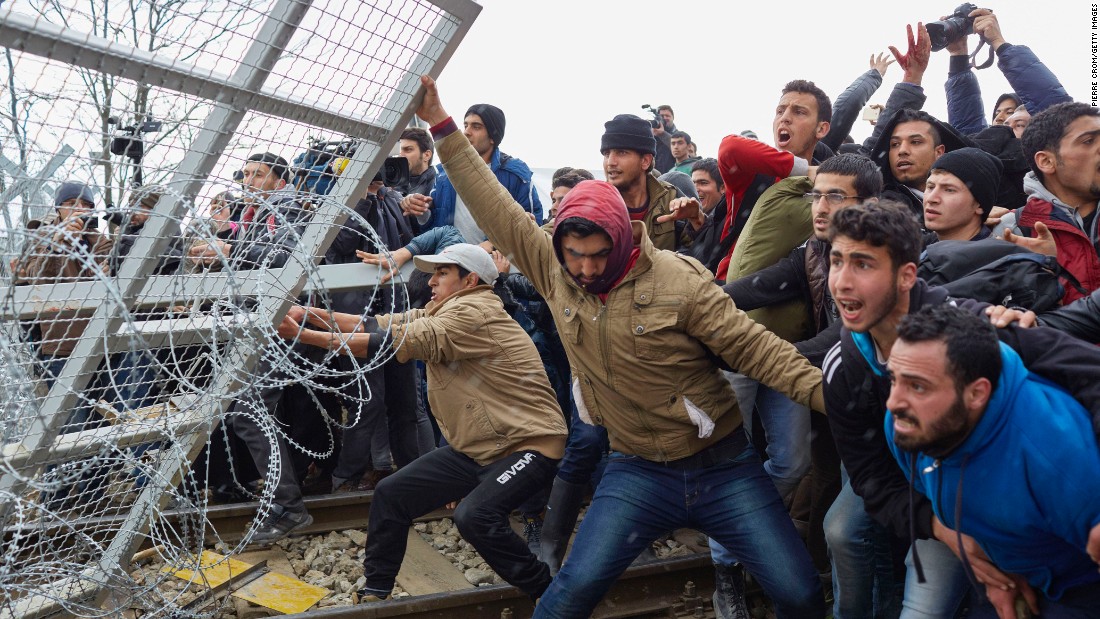
How the Latest Great Migration Is Reshaping Europe
It was all a mad rush—and yet it has gone remarkably well. Elsewhere things were tougher. “No one was prepared, no one in Germany,” Anselm Sprandel, Hamburg’s refugee coordinator, told me. The city had to accommodate 35,000 refugees last year—half as many as the entire U.S. takes from the world. “We never really had homelessness, where masses of people were sleeping outside. But it was close.” Sprandel’s staff placed people in bankrupt home-improvement stores, in stackable modules made from shipping containers, and in heated tents. In Berlin many refugees were housed in school gymnasiums or in a hangar at Tempelhof Airport. Only plastic partitions separated one family or group from another.
...
The refugees have become a fixture on the streets of Rotenburg. You see them slogging uphill toward the army base, pushing strollers and old bicycles and carrying plastic bags. Besides room, board, donated clothing, and other in-kind benefits, they receive monthly allowances of up to 112 euros per adult and 63 euros per child. (The euro has lately been fluctuating around U.S. $1.10.) “The money they’re given, they spend here in town,” said Frank Ziegenbein, proprietor of the Landhaus Silbertanne, a local hotel. “Otherwise you could just turn out the lights in Rotenburg”—an exaggeration, but Grunwald confirmed that the refugees have been an economic plus.
The Immigration Crisis Is Tearing Europe Apart
The recent lone-wolf terrorist attacks on the beachfront in Nice and on a train in Bavaria are likely to fuel existing anti-refugee, anti-Muslim fears in a Europe made uneasy by large-scale attacks in the last year in Paris and Brussels. As of writing, it is too early to say whether the ongoing violence in Munich will add to this grim toll.
Nevertheless, these sentiments are particularly prevalent among people on the right of the ideological spectrum in many European nations, according to a recent Pew Research Center survey of 10 countries in the European Union. Given Europe’s tragic history with right-wing political movements and the recent rise of avowedly anti-immigrant parties in France, Germany, the Netherlands, Sweden, and the United Kingdom, this ideological divide does not bode well for the future of social harmony in a Europe that has a rapidly growing immigrant population.
The refugee crisis is waking old fears in central Europe
The ethnic background of refugees has changed hugely over the past several decades. In the 1990s, after the fall of the iron curtain, most were Europeans, mostly Christian. Now most are Muslims from Asia and Africa.
Undoubtedly, the expansion of the European Union has increased its internal heterogeneity, but when the German chancellor, Angela Merkel, mentioned that Muslims are already part of the culture of many EU countries, these were words that were not given the same welcome in all countries.
Expansion of the EU eastwards meant an incorporation of countries whose values might not be entirely in line with the European “norm”. What we are seeing now is in part an expression of that tension, a need to balance the EU’s security interests on the one hand and the interests of the development of democracy and protection of human rights on the other.
The increasing numbers of people seeking asylum has thrown into the air a simple “progressive” development of Europe. Instead, the sometimes hostile reception given to migrants and refugees, the closing of borders, even the possibility of the exit of some countries from the Schengen agreement has taken us back into history, and in particular, the specific history of this part of the world.
Remember that the refugees are now flowing through the Balkan countries that, only 20 years ago, were the scene of inter-ethnic bloodshed. The Balkans had long been under the rule of the Ottoman empire and attitudes towards Muslims in many places are ambivalent, at best. (And the truth is that most countries in central and south-western Europe are, in turn, not attractive for asylum seekers, but are rather mere transit countries.)
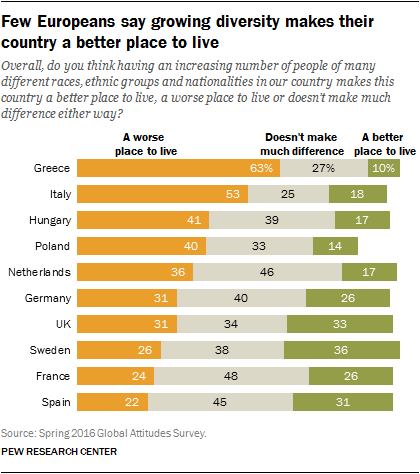
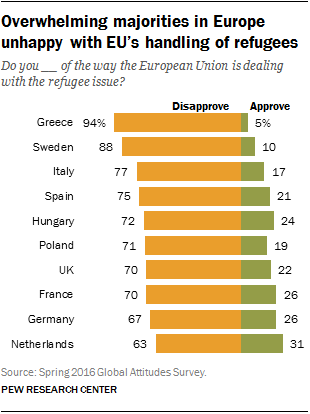
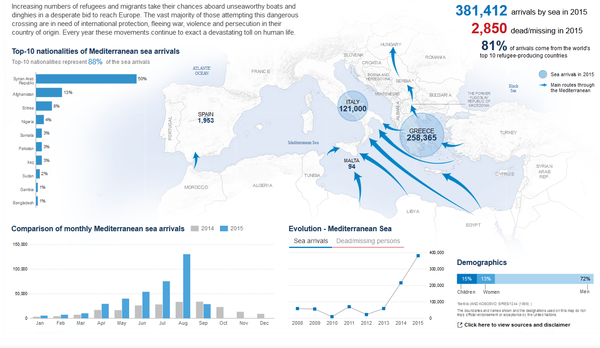
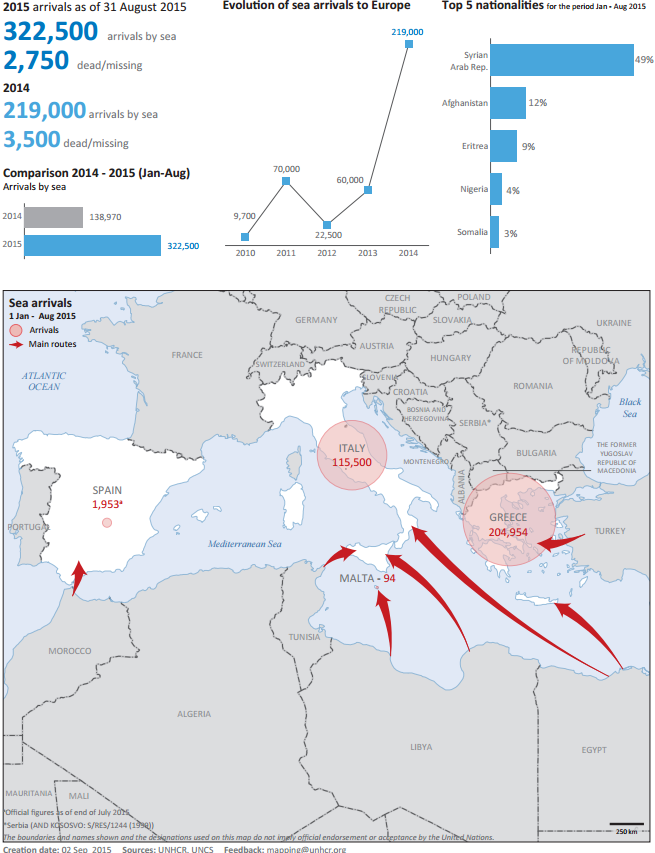
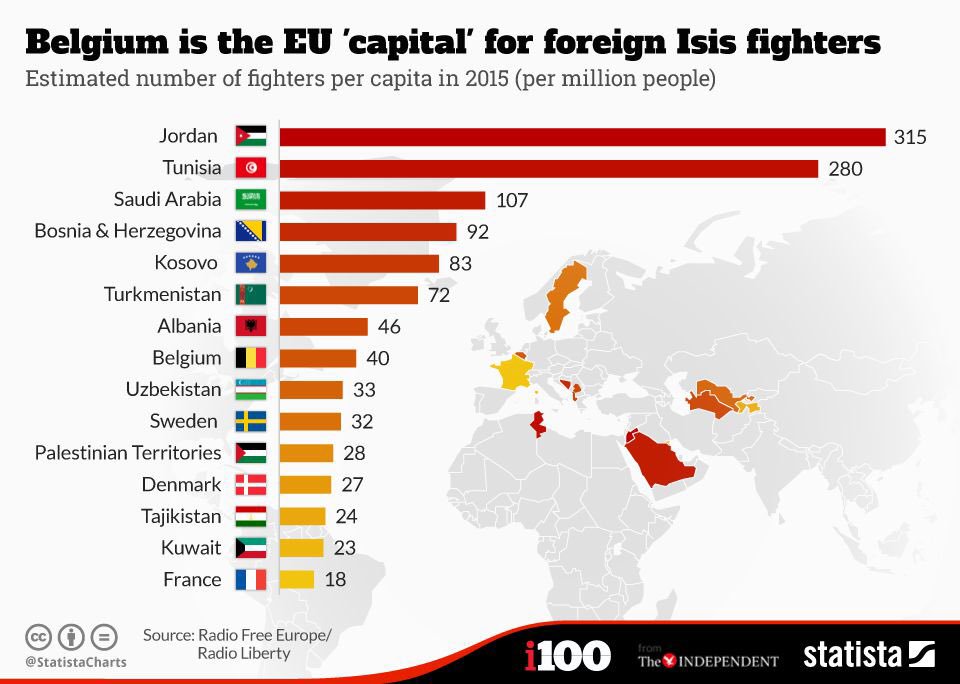
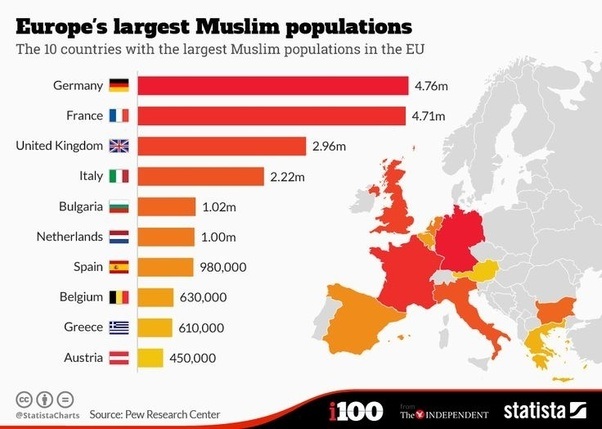
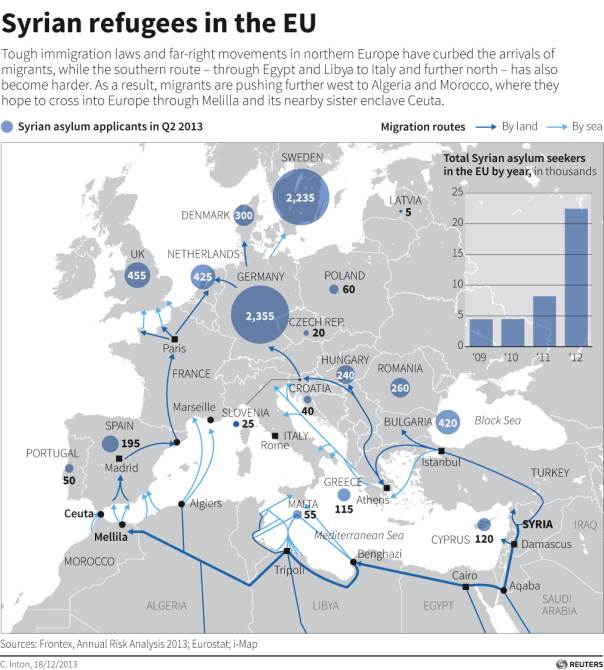
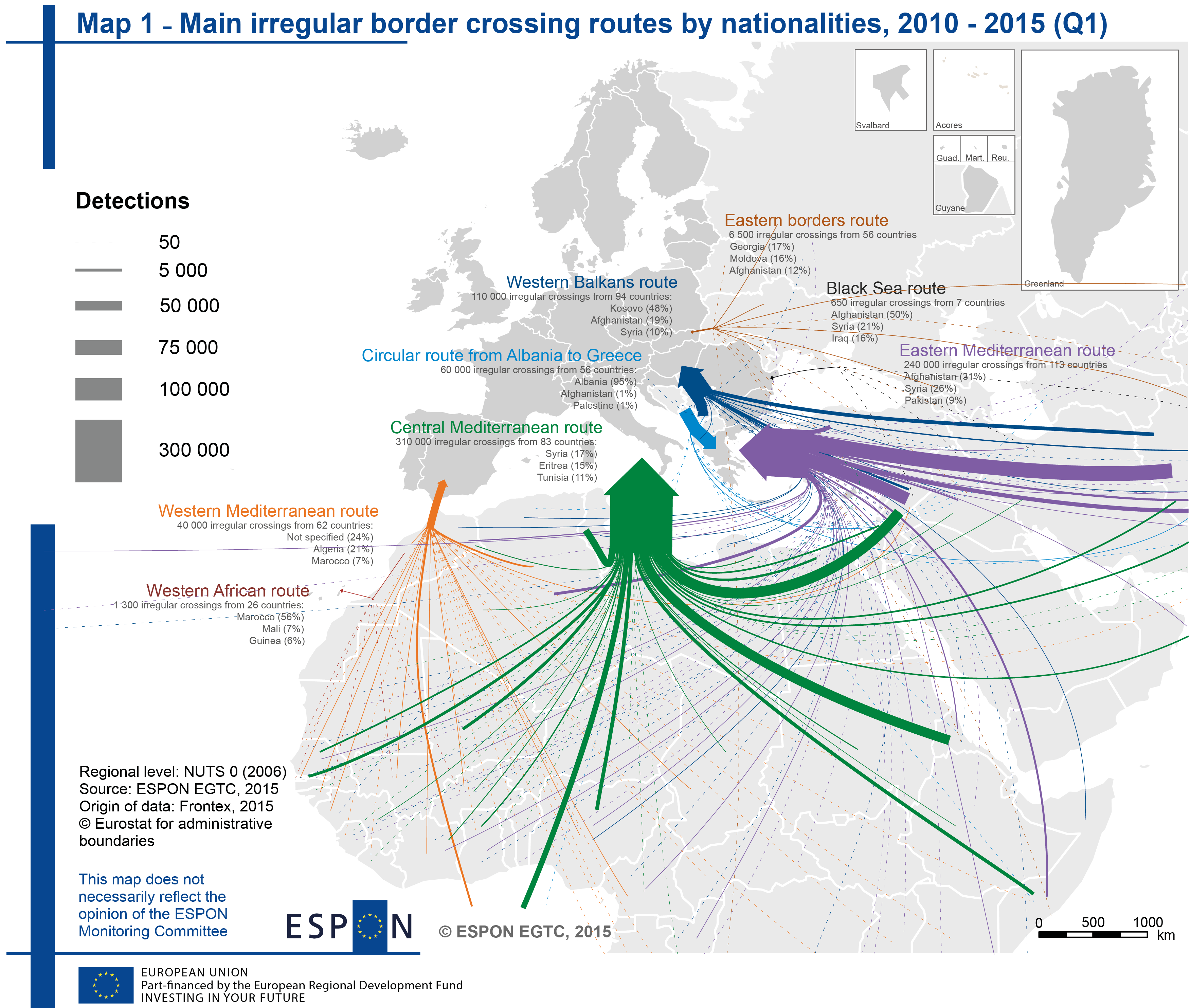
originally posted by: theantediluvian
I know you have these opinions of transhumanism and a Silicon Valley plot, etc.
I spent 5 solid totally dedicated years to exposing it, and in 2010 I PROVED that agenda:
The Story of the Millennium: The AGI Manhattan Project:
Welcome to the Unpossible Future... The AGI Manhattan Project
CHAPTER 2 - Economic World War: Technocratic Plutocrat Elites vs. The People
CHAPTER 3 - The Global Meltdown of FEAR
Shortly after I tuned completely out of politics for 5 years, until last summer. I was so effectively tuned out that I had no clue what as "SJW" was. Took me a few weeks of observing everyone around here, and running the Google as I did until the whole thing hit me. And at that moment of clarity of what it was all about it hit me like the morning I watched the Twin Towers collapse live on TV.
And in no time I started finding how Google for one has been dumping hundreds of millions of dollars into SJ etc.
I already knew they effectively were a part of Obama's cabinet.
I barely knew the Arab Spring had happened.
I was noticing some BLM headlines but had no clue it meant anything beyond protesting blacks getting shot, which proved to be the enraging facade of their all out SJW + globalism + collectivism laundry list of a manifesto.
I did know who Soros was and wasnt surprised to quickly start noticing how BLM was pretty much his invention from the get, that we already know of.
So now Soros is also effectively a part of Obama's cabinet, right in there with Google.
Meanwhile all the other pro-AI pro-Transhumanism tech giants were in lockstep with pushing the SJW agenda across the masses, and all that.
Now refer back to my standard simplified definition of "Propaganda", for 10 or so years now:
Propaganda is the science of mass persuasion and/or diversion".
Also note that last summer in no time I came out calling the true nature of SJW as being "Social Group Warfare (SGW)". And my whole point of it is its the most spectacular self-proliferating mass movement of total mind blowing diversion from the Real Big Issues facing our species (such as the AGI Manhattan Project).
It makes perfect sense seeing the big time elitists all funding BLM and all the like, its the big hot scene for robberbarrons industrialists of old and new alike.
www.washingtontimes.com...
Why the would old school and new school robberbarron war mongering psychopaths be funding all that?
DIVERSION.
What are they diverting from? Well look at the point of the most highly induced rabidness: anything to to with "trans".
Todays its transgenders, mark my words the whole scene will shift to transhumanism. I've been noticing little examples of it without even looking for it.
So they've even managed to package their own self-serving endgame into the propaganda model, which also keep EVERYBODY too busy at each others throats about all of the most primitive inane tribalist BS ever.
And where is all that coming from? The universities. The social engineers at the universities where all this BS is fountainheading out from, these people know every thing I do and more about how they identity politics model was invented by the Nazi's, which is how they turned the German people mindless genocidal drones. Sorry, I aint buying it, there's no way the nations top social sciences people crafting this PC SJW BS dont totally get the history, dont totally get the tribalist science and not totally know where it came from.
And here's the lynchpin of the whole thing above, be sure and read the AGI Manhattan Project and read it well: all these SJW fountainhead universities They Are All An Intergral Part Of The AGI Manhattan Project.
So its not like the social engineers dont know The Real Agenda™.
And as long as well all fight and bicker then we all ignore their real agenda. I give you "the why of it":
edit on 3-11-2017 by IgnoranceIsntBlisss because: (no reason given)
originally posted by: theantediluvian
I've got to run some errands but if I find some time, I'll check out the video. I'm not promising I'm going to dedicate 3 hours of my life to it though!
You can go 3 hours without CNN cant cha?
HyperNormalization is easily one of the best / most relevant / etc docu's of 2016.
Lost interest when you suggested that Syria was named as part of the "axis of evil". If you couldn't get that information right, it is very likely
very little of what you say is.
a reply to: onthedownlow
en.wikipedia.org...
en.wikipedia.org...
On May 6, 2002, then-Undersecretary of State John R. Bolton gave a speech entitled "Beyond the Axis of Evil". In it he added three more nations to be grouped with the already mentioned rogue states: Cuba, Libya, and Syria. The criteria for inclusion in this grouping were: "state sponsors of terrorism that are pursuing or who have the potential to pursue weapons of mass destruction (WMD) or have the capability to do so in violation of their treaty obligations."[5]
edit on 3-11-2017 by IgnoranceIsntBlisss because: (no reason given)
a reply to: IgnoranceIsntBlisss
Thanks for pointing that out. I must say though, I am a bit surprised, I thought Syria was working towards becoming a US Ally under Assad
Thanks for pointing that out. I must say though, I am a bit surprised, I thought Syria was working towards becoming a US Ally under Assad
a reply to: onthedownlow
Not that I can recall, but that was the case with Libya, as shown in HyperNormalization, and Hillary etc turned on him out of no where when the rioting got going good.
Not that I can recall, but that was the case with Libya, as shown in HyperNormalization, and Hillary etc turned on him out of no where when the rioting got going good.
U.S. Groups Helped Nurture Arab Uprisings
By RON NIXONAPRIL 14, 2011
WASHINGTON — Even as the United States poured billions of dollars into foreign military programs and anti-terrorism campaigns, a small core of American government-financed organizations were promoting democracy in authoritarian Arab states.
The money spent on these programs was minute compared with efforts led by the Pentagon. But as American officials and others look back at the uprisings of the Arab Spring, they are seeing that the United States’ democracy-building campaigns played a bigger role in fomenting protests than was previously known, with key leaders of the movements having been trained by the Americans in campaigning, organizing through new media tools and monitoring elections.
A number of the groups and individuals directly involved in the revolts and reforms sweeping the region, including the April 6 Youth Movement in Egypt, the Bahrain Center for Human Rights and grass-roots activists like Entsar Qadhi, a youth leader in Yemen, received training and financing from groups like the International Republican Institute, the National Democratic Institute and Freedom House, a nonprofit human rights organization based in Washington, according to interviews in recent weeks and American diplomatic cables obtained by WikiLeaks.
The work of these groups often provoked tensions between the United States and many Middle Eastern leaders, who frequently complained that their leadership was being undermined, according to the cables.
The Republican and Democratic institutes are loosely affiliated with the Republican and Democratic Parties. They were created by Congress and are financed through the National Endowment for Democracy, which was set up in 1983 to channel grants for promoting democracy in developing nations. The National Endowment receives about $100 million annually from Congress. Freedom House also gets the bulk of its money from the American government, mainly from the State Department.
new topics
-
What if this is true?
2024 Elections: 35 minutes ago -
Merry-Go-Round Ride
Short Stories: 2 hours ago -
It's toast
General Chit Chat: 6 hours ago -
Man Stabbed or Cardiac arrest on Westminster Bridge, London, UK
Mainstream News: 8 hours ago -
A fix for the Trans players in sports
Social Issues and Civil Unrest: 9 hours ago
top topics
-
Petition Calling for General Election at 564,016 and rising Fast
Political Issues: 12 hours ago, 14 flags -
A fix for the Trans players in sports
Social Issues and Civil Unrest: 9 hours ago, 14 flags -
Man Stabbed or Cardiac arrest on Westminster Bridge, London, UK
Mainstream News: 8 hours ago, 7 flags -
It's toast
General Chit Chat: 6 hours ago, 7 flags -
What if this is true?
2024 Elections: 35 minutes ago, 6 flags -
Merry-Go-Round Ride
Short Stories: 2 hours ago, 4 flags
active topics
-
What if this is true?
2024 Elections • 5 • : BingoMcGoof -
Merry-Go-Round Ride
Short Stories • 5 • : randomuser2034 -
Results of the use of the Oreshnik missile system in Dnepropetrovsk
World War Three • 217 • : worldstarcountry -
Russia Ukraine Update Thread - part 3
World War Three • 6876 • : worldstarcountry -
Petition Calling for General Election at 564,016 and rising Fast
Political Issues • 65 • : Oldcarpy2 -
It's toast
General Chit Chat • 9 • : Bluntone22 -
A fix for the Trans players in sports
Social Issues and Civil Unrest • 18 • : Tolkien -
Inca stone masonry at Sacsayhuaman, Ollantaytambo and the Sun Temple
Ancient & Lost Civilizations • 16 • : xxtrapsxx -
Well we know Putins ICBMs won't fail in their silos
World War Three • 214 • : 777Vader -
Well, here we go red lines crossed Biden gives the go ahead to use long range missiles
World War Three • 344 • : Xtrozero


